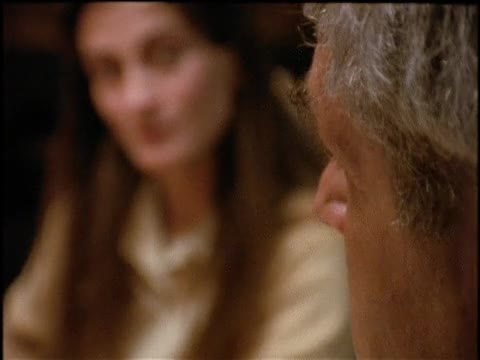NOVA; To the Moon; Footage of a roundtable conversation among lunar scientists, part 2 of 2
- Series
- NOVA
- Episode
- To the Moon
- Producing Organization
- WGBH Educational Foundation
- Contributing Organization
- WGBH (Boston, Massachusetts)
- AAPB ID
- cpb-aacip-15-gt5fb4xv21
If you have more information about this item than what is given here, or if you have concerns about this record, we want to know! Contact us, indicating the AAPB ID (cpb-aacip-15-gt5fb4xv21).
- Description
- Program Description
- This remarkably crafted program covers the full range of participants in the Apollo project, from the scientists and engineers who promoted bold ideas about the nature of the Moon and how to get there, to the young geologists who chose the landing sites and helped train the crews, to the astronauts who actually went - not once or twice, but six times, each to a more demanding and interesting location on the Moon's surface. "To The Moon" includes unprecedented footage, rare interviews, and presents a magnificent overview of the history of man and the Moon. To the Moon aired as NOVA episode 2610 in 1999.
- Raw Footage Description
- Footage of a roundtable conversation among lunar scientists on various theories of the moon. The discussion includes a conversation on the moon as the Rosetta Stone to understanding the solar system, a conversation on the future of space exploration and the need to colonize other planets, and a conversation on what happens after mankind reaches Mars.
- Created Date
- 1998
- Asset type
- Raw Footage
- Genres
- Interview
- Topics
- History
- Technology
- Science
- Subjects
- American History; Gemini; apollo; moon; Space; astronaut
- Media type
- Moving Image
- Duration
- 00:11:32
- Credits
-
-
Producing Organization: WGBH Educational Foundation
Speaker: Drake, Michael J., 1946-2011
Speaker: Canup, Robin M., 1968-
Speaker: Wilhelms, Donald, 1930-
Speaker: Drake, Michael J., 1946-2011
Speaker: Canup, Robin M., 1968-
Speaker: Wilhelms, Donald, 1930-
- AAPB Contributor Holdings
-
WGBH
Identifier: cpb-aacip-4aac45c23a7 (Filename)
Format: Digital Betacam
Generation: Original
Duration: 0:11:32
If you have a copy of this asset and would like us to add it to our catalog, please contact us.
- Citations
- Chicago: “NOVA; To the Moon; Footage of a roundtable conversation among lunar scientists, part 2 of 2,” 1998, WGBH, American Archive of Public Broadcasting (GBH and the Library of Congress), Boston, MA and Washington, DC, accessed February 28, 2026, http://americanarchive.org/catalog/cpb-aacip-15-gt5fb4xv21.
- MLA: “NOVA; To the Moon; Footage of a roundtable conversation among lunar scientists, part 2 of 2.” 1998. WGBH, American Archive of Public Broadcasting (GBH and the Library of Congress), Boston, MA and Washington, DC. Web. February 28, 2026. <http://americanarchive.org/catalog/cpb-aacip-15-gt5fb4xv21>.
- APA: NOVA; To the Moon; Footage of a roundtable conversation among lunar scientists, part 2 of 2. Boston, MA: WGBH, American Archive of Public Broadcasting (GBH and the Library of Congress), Boston, MA and Washington, DC. Retrieved from http://americanarchive.org/catalog/cpb-aacip-15-gt5fb4xv21
